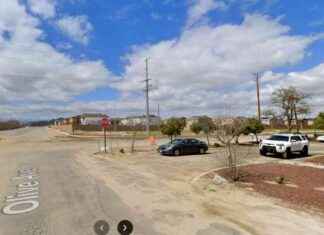The “autumn storm” is about the British economy: business confidence has fallen into chopped in September before the serious “supply crisis” that has caused endless queues in gas stations and threatening to spread to all sectors, transportation
to food, going through education, health, care, hospitality and restoration.
The situation of lack of personnel (caused mainly due to the lack of immigrants from the EU by Brexit and the pandemic) is so desperate that Deputy Prime Minister Dominic Raab has left the door open to the use of inmates as “remunerated work force”.
RAAB itself has also been willing to consider the possibility of allowing the 70,000 applicants pending their asylum application in the United Kingdom to work temporarily in the country.
The increasing problems due to the lack of workers, due to the increase in costs, by the energy crisis, due to disruptions in the supply chains and by increasing social security contributions have caused the sudden fall of the business trust index of
22 points at least 1 along the rugged September month, according to data from the Institute of Directors (IOD).
“The business climate has deteriorated drastically in recent weeks,” said Kitty Ussher, Economist Chief IOD.
“After a period of optimism before summer, people at the front of small and medium-sized companies have much less certainty about the economic situation of the country.”
Despite the growth of the economy of 5.5% in the second quarter of the year, the pessimism of entrepreneurs returns to the level that was last February, in the middle of the third confinement of the Covid.
The aid program for companies during the pandemic – with which the government supported the maintenance of 12 million jobs – has come to an end at a critical moment and has triggered the fear of an increase in unemployment in a scenario of
High inflation
The confederation of the British industry (CBI) has warned that “all sectors” will be affected by the economic clouds and has alerted that employers have gone from “the mentality of growth and investment to that of crisis management”.
Craig Beaumont, head of external relations of the Small Business Federation, has coined the term “autumn storm” in statements to the Financial Times, with the images of the queues before the gas stations as a backdrop.
The crisis of the gas stations -raused by an estimated fault of up to 50,000 trucks in the fuel distribution- entered Friday in its second week with relative signs of improvement.
The large multinationals (BP, Shell and Esso) issued a statement in the last hours expressing their confidence that “the situation will stabilize in the coming days” (although it may be late for another week to return to normal).
Meanwhile, some 150 soldiers have been trained and remain in rearguard in case it was necessary for their intervention, to the delivery truck controls, to solve the supply crisis in the coming days.
The Association of Petroleum Vendors (PRA), which brings together independent gas stations, has warned that 48% of their seasons continue to have supply problems of diesel or lead-free gasoline.
The crisis of gas stations has unevenly affected the country.
While in Scotland and Northern Ireland they have faltered, the problems have been exacerbated mostly in the south of England and particularly in London.
“Contrary to what the Prime Minister has said, the situation has not improved and between 25% and 30% of our fleet has not been able to work this week,” said BBC Steve McNamara, secretary of the driver’s association of
Taxi in the British capital.
Boris Johnson has shone his absence for much of the crisis of gas stations.
The “Premier”, which next week faces the fire test of the Conservative Party Conference, intervened in the middle of the week claiming that the situation was “stabilizing” and calling for calm from motorists, although understanding at the same time
“frustration”.
The leader of the Labor Opposition, Keir Starmer, has accused Johnson’s share of “taking the country to chaos while we come from crisis crisis.”
Starmer showed this week the conservative leader of having completed the Brexit “without a plan to make the Bexit Fucle.”
According to IPSOS MORI estimates, the flow of EU immigrants to the United Kingdom has gone from 60% of the total in 2019 to 29% in June 2021. On that dates, the number of immigrants requested to register for safety
Social was 270,000, less than half than the previous year.
By sectors, the most affected by the lack of personnel is that of transport, followed by administrative positions, education, culture, hospitality, food and health.
More than 75% of British considers that the Government should allow the contracting of imigrants for key sectors with health and social care.
More than 60% is in favor of softening the restrictions of the new Memorial Points System to the Australian, after Brexit, to allow the entry of temporary workers or to cover vacancies in sectors with lack of personnel.
In an interview on the Conservative Home portal, the Secretary for Kwasi Kwarteng companies admitted that problems such as lack of supply in gas stations “are part of the transition to the new post-brexit economy.”
Kwarteng noted that “the low-wage and high immigration model” was defeated at the EU referendum of 2016, although it recognized that there are pressures by parts of various sectors (from transport to agriculture) to return to “the old days” with
The emission of thousands of work visas.
In a desperate attempt to mitigate the supply crisis, the British transport department has sent one million cards to card holders to drive trucks, although most have no experience in driving heavy vehicles.
Among the receivers of the letter are thousands of Germans residents in the United Kingdom.






